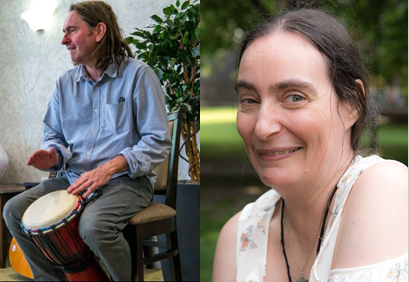A Bigger Picture: Community Music Therapy Groups in Residential Settings for People with Learning Disabilities
DOI:
https://doi.org/10.15845/voices.v16i3.845Palabras clave:
Community Music Therapy, systemic thinking, ecological music therapy, learning disabilities, intellectual disabilities, support workersResumen
This article introduces our development of the concepts of Community Music Therapy and systemic thinking within our music therapy service. The work, which was in a supported living setting for adults with learning disabilities (intellectual disabilities), was set up in response to the challenges of providing a more conventional music therapy service within the London Borough of Sutton Clinical Health Team for people with learning disabilities (Intellectual disabilities). We discovered that collectively our clients, their support workers, and ourselves were being reduced in our human value by not being seen or heard. The Clinical Health Team for people with Learning Disabilities is made up of a variety of health professionals and is part of the London Borough of Sutton's Disability Services. The creative therapy part of the service is music and dramatherapy. Creative therapies look at a wide range of emotional and mental health needs for people with learning disabilities such as depression, anxiety, challenging behaviour, transition, and change.
Descargas
Publicado
2016-09-06
Cómo citar
Clarkson, A. R., & Killick, M. (2016). A Bigger Picture: Community Music Therapy Groups in Residential Settings for People with Learning Disabilities. Voices: A World Forum for Music Therapy, 16(3). https://doi.org/10.15845/voices.v16i3.845
Número
Sección
Reflections on Practice
Licencia
Articles published prior to 2019 are subject to the following license, see: https://voices.no/index.php/voices/copyright

